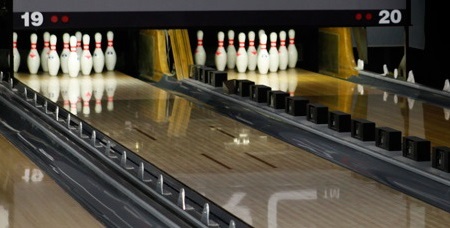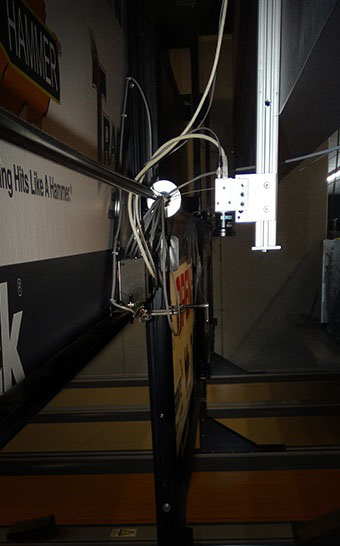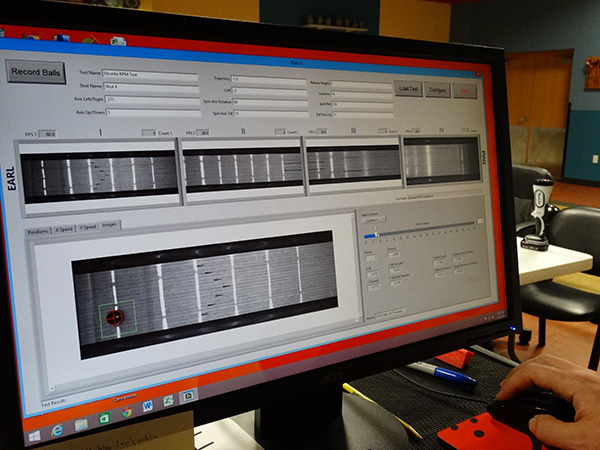Introducing B.O.L.T.S
The USBC Equipment and Specifications program has put the finishing touches on its Ball on Lane Tracking System, known as B.O.L.T.S. B.O.L.T.S is a great advance in the method through which a ball’s path is tracked while traveling down a lane. USBC worked to create B.O.L.T.S in order to maintain pace with the innovation in bowling equipment.
Development of B.O.L.T.S began in the summer of 2013 to replace the current Computer-Assisted Tracking System (C.A.T.S.). C.A.T.S was developed in the 1980s by USBC as the first digital ball-tracking system available to bowling centers. C.A.T.S is comprised of on-lane sonar devices that utilize laser-like beams to detect the ball as it passes. As the ball passes, C.A.T.S is able to sense the ball’s speed, spin and motion as it heads down the lane. However, C.A.T.S is only able to collect as many data points as the amount of devices that are placed on the lane.

On either side of the lane are the C.A.T.S sonar detectors used to track ball motion.
B.O.L.T.S utilizes four cameras placed above the lane in order to be able to track the ball’s movement all the way down the lane. There are three cameras placed on the ceiling and a fourth placed closer to the lane behind the masking unit.

These cameras allow the system to track data at 60 frames
per second, thus gathering 80-120 data points per shot. B.O.L.T.S also analyzes
the data so quickly that the software shows the ball path and data sets before
the ball is even returned.

The data collected from B.O.L.T.S will help the USBC Equipment Specifications and Certification team with testing various bowling balls and better understanding how certain oil patterns affect ball motion. B.O.L.T.S resembles the camera technology utilized by SportVU in basketball to track player and ball movement. At first, USBC experimented with the idea of utilizing Bluetooth or placing a sensor in the bowling ball itself to track movement similar to the remotes utilized by the Nintendo Wii, but eventually settled on the B.O.L.T.S method.
This research tool will be a great aid to the bowling
community in order to further study the physics of our sport.
More from USBC Bowler's Source...









.jpg?n=9558)